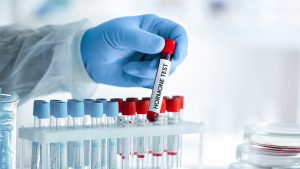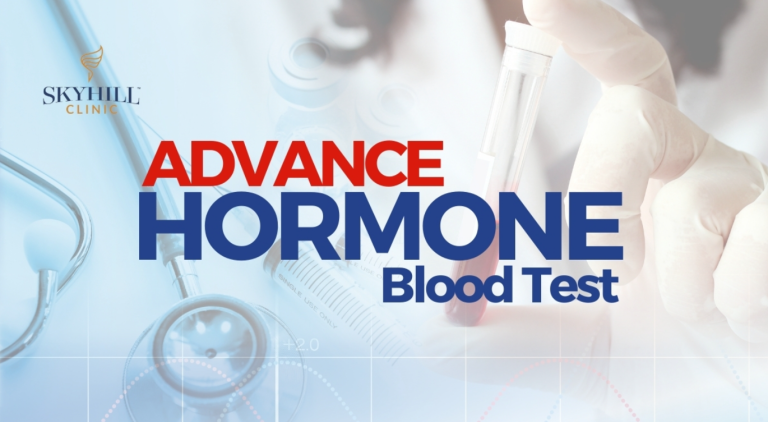Sudden changes in weight aren’t always about calories or exercise. Hormones—your body’s chemical messengers—play a critical role in metabolism, appetite, and fat storage. When they fall out of balance, you may notice unexplained weight gain or loss even if your diet and activity levels haven’t changed. Understanding the hormonal causes can help you identify the problem and take action.
1. Thyroid Hormones: The Metabolism Regulators Weight Gain or Loss
Your thyroid gland produces T3 and T4 hormones that control your metabolic rate.
- Hypothyroidism (Underactive Thyroid): Slows metabolism, leading to weight gain, fatigue, dry skin, and feeling cold.
- Hyperthyroidism (Overactive Thyroid): Speeds up metabolism, often causing weight loss, rapid heartbeat, and anxiety.
Routine thyroid screenings (TSH, Free T3, and Free T4) can reveal issues before they escalate.
2. Cortisol: The Stress Hormone Weight Gain or Loss
Cortisol, released by your adrenal glands, helps your body respond to stress. Chronic stress or adrenal dysfunction can cause elevated cortisol levels, which may lead to abdominal fat storage or muscle loss. Conversely, low cortisol (adrenal fatigue) can contribute to unintentional weight loss, fatigue, and low blood pressure.
3. Insulin: The Blood Sugar Balancer Weight Gain or Loss
Insulin moves glucose into your cells for energy. When cells become resistant to insulin, your body stores more fat, especially around the midsection. Weight gain, cravings, and post-meal fatigue can signal insulin resistance—an early sign of metabolic syndrome or diabetes.
4. Estrogen and Progesterone: The Reproductive Hormones Weight Gain or Loss
In women, estrogen dominance or low progesterone can cause bloating, water retention, or stubborn fat around the hips and thighs. Perimenopause and menopause often bring weight redistribution toward the abdomen. Men with low estrogen or testosterone may also see shifts in body composition.
5. Testosterone: The Muscle and Energy Hormone
Testosterone isn’t just for men—it’s important for women too. Low testosterone can reduce muscle mass and slow metabolism, leading to gradual weight gain. In women, high testosterone (as seen in PCOS) can cause weight gain, especially in the abdominal area.
6. Leptin and Ghrelin: Appetite Control Signals
Leptin tells your brain you’re full, while ghrelin signals hunger. Disruptions—often from poor sleep or chronic stress—can trigger overeating or appetite suppression, leading to weight changes without any conscious dietary shifts.
7. DHEA-S and Growth Hormone (IGF-1): Aging and Body Composition
DHEA-S and IGF-1 affect muscle repair and fat distribution. Declines with age can make maintaining a healthy weight more challenging, even with consistent habits.
Recognizing the Signs of Hormonal Imbalance
- Persistent fatigue or low energy
- Mood swings or irritability
- Changes in hair, skin, or digestion
- Irregular menstrual cycles or low libido
- Difficulty losing or maintaining weight despite healthy habits
The Hidden Hormonal Cause of Weight Gain
When to See a Doctor
If you experience sudden weight gain or loss without lifestyle changes, request a comprehensive hormone panel. Tests may include:
- Thyroid panel: TSH, Free T3, Free T4
- Cortisol testing
- Serum insulin and fasting glucose
- Sex hormones: Estrogen, progesterone, testosterone, LH/FSH
- Vitamin D and DHEA-S levels
Early testing helps catch conditions like thyroid disease, adrenal dysfunction, or insulin resistance before they lead to further complications.
Lifestyle Tips for Hormonal Balance
- Prioritize Sleep: 7–9 hours supports leptin and ghrelin regulation.
- Manage Stress: Meditation, yoga, or deep breathing can lower cortisol.
- Balanced Nutrition: Focus on whole foods, fiber, and lean protein to stabilize blood sugar.
- Exercise Regularly: Strength training builds muscle and supports testosterone.
- Regular Check-Ups: Annual hormone screenings can track changes over time.
Conclusion

Sudden weight changes can be alarming, but they’re not always about willpower or diet. Hormones are powerful regulators of metabolism, appetite, and fat storage. By recognizing the signs of imbalance and working with a healthcare professional for testing and treatment, you can address the underlying cause and restore balance to your body and weight.
More interesting articles here : What causes rapid weight gain?











